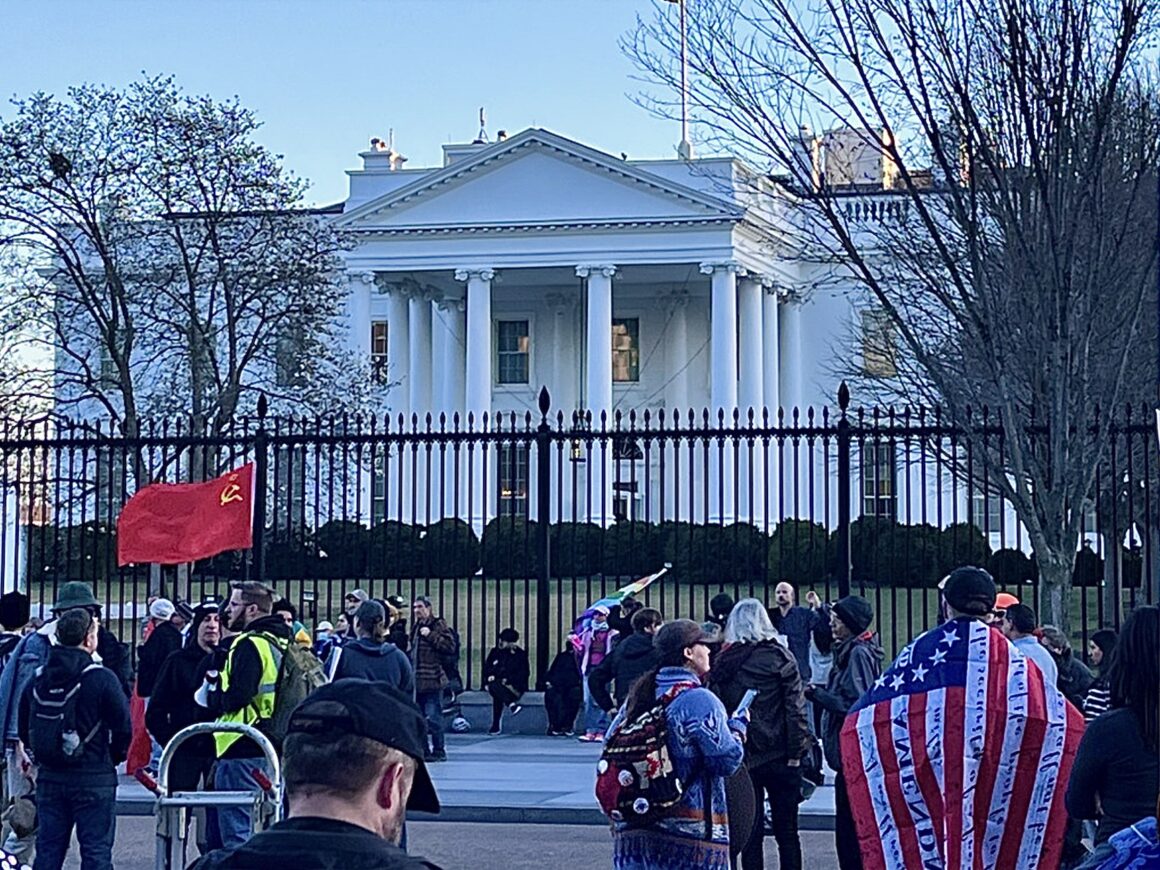The unprecedented pro-Palestine shift in the discourse that’s happened over the last half-year, as well as the decline in the effectiveness of the Ukraine psyop, have gone along with another narrative setback for the liberal order: the bursting of the “attention bubble.” As the renegade former BreadTube member Peter Coffin concluded this week, the oversaturation of online content that’s occurred is the latest example of capitalism’s “crisis of overproduction.” This is when the profit motive incentivizes the capitalists to produce so much of a commodity that this commodity becomes longer able to generate a return on profits, forcing the capitalists to degrow the economy. Coffin observes that the present trend where the biggest YouTubers have been retiring represents a new version of this degrowth, where it’s becoming in the best interests of the content business to shrink the costs of production.
By default, what fills this vacuum is content that’s cheaper and more crude. This is shown both in the social media monetization business, and in the arenas of mainstream media political discourse. AI-generated content is becoming exponentially more prominent, while BreadTube is being replaced by a controlled anti-woke backlash. But these attempts to distract the public aren’t enough to make the liberal technocrats reach their goal in the narrative war: to reverse the progress that the USA’s anti-imperialist movement has made since the Ukraine conflict’s escalation in February of 2022.
Since that time, this movement has done something it’s not been able to do since the Black Panther Party’s Rainbow Coalition: form a substantial alliance against monopoly finance capital among a diverse array of elements. Between the time of the Panthers and the time of Russia’s special operation, the only mainstream antiwar alliances that arose in this country were partnerships between groups that share the left-liberal ideological orientation. Which means they weren’t true coalitions, because they weren’t capable of bringing in the broader masses; only the people who were either already within the activist niche, or were part of the Democratic Party’s base. And throughout the new cold war, when liberals have been getting increasingly aligned with the war machine and the intelligence agencies, this strategy of centering liberals in one’s outreach has become even less sound.
When the Biden administration provoked war in Ukraine, the antiwar movement was desperate for the reemergence of a true coalition. And within a year after Russia began its intervention, this is what the movement got. The communist groups that recognized the righteousness of Russia’s anti-imperialist action formed a coalition with the libertarians, and with others outside the left who prioritize the fight against U.S. hegemony.
MSNBC, the pro-Ukraine elements of the “left,” and their tactical allies within the sectarian parts of U.S. Marxism mobilized to try to discredit this coalition, promoting scandal-mongering narratives about it. The limitation on this kind of propaganda, though, is that it’s designed to only be able to convince people who are already within leftist circles. Which will prevent the propaganda’s targets from gaining some potential allies, but ultimately can’t stop most others from joining with the anti-imperialist groups. The only way this can be accomplished is by crushing these groups with direct repression, which the state doesn’t see as an ideal option. As this would expose the myth about liberalism being “democratic.”
With the Israel-Palestine escalation, such a balance between “freedom” and oppression has been shown to be impossible for the technocrats to maintain. When the Palestinian struggle made great new progress this October, and the Zionists retaliated, inevitably our political order came to take on more of an explicitly undemocratic nature. The Zionists carried out a witch-hunt, doxxing and firing people who didn’t go along with their crackdown against pro-Palestine activism. The leftists who’d promoted cancel culture suddenly found their own tools being used against them, while many conservatives who were neutral on Israel started to notice that there’s something seriously concerning about the pro-Zionist zealots.
Everybody with an open mind has been getting forced to reevaluate where they stand in history. This could lead to the new anti-monopoly coalition experiencing a great increase in its momentum and mass support.
One thing that may help catalyze such a development is next month’s Defeat the Deep State rally, which is being put on by the same formation behind last February’s Rage Against the War Machine event. It’s not the only chance we’ll have to advance our cause to the next stage of success, though. With the U.S. empire’s decision this week to further escalate global conflict, rather than comply with the demand of the Houthis to end the genocide, anti-imperialist sentiments within the online discourse have become perhaps greater than ever. This is because of the compounding nature of the empire’s present narrative crisis. Yemen has been added to Ukraine and Gaza as one of the U.S. empire’s great liabilities in the narrative war. And this is shown by how the established left orgs, which only do things that are politically safe, have joined in on the pro-Yemen organizing trend.
We know these orgs aren’t going to do what the anti-monopoly struggle needs in order to win, though. They won’t defy the narratives the national security state is using to justify its crackdown on civil liberties. They won’t build a real coalition that extends beyond the left-liberal spaces. They won’t work to repair the damage they’ve done to the Hands off Uhuru movement. And they won’t stop trying to separate anti-imperialists from Russia. The job of those who aren’t invested in these compromised political projects is to fill the role that the established left orgs refuse to fill, and build an actual anti-monopoly mass movement.
Because of capitalism’s broader crisis of overproduction—which has destroyed the country’s living standards, and is close to bringing an unprecedented economic meltdown—it’s becoming ever more of a practical necessity that somebody carry out such a project. And with the recent microcosm of that crisis in the realm of online content, we have an opportunity to change the discourse in a way that favors our goals. The anti-populist propaganda that’s designed to hinder anti-imperialists is directed at the professional managerial class “left,” and most people aren’t PMC. Which means if we stay committed to our present path, and redouble our efforts amid this more intense new era of war escalations, we’ll render the gatekeepers ineffective.
Anti-imperialists have been gaining many victories within the discourse. The Zionists have found themselves narratively overwhelmed in recent months, to an extent that they never have until now. The shift towards pro-Palestine sentiment has been so substantial that they can no longer gain leverage over the discourse by making examples out of figures who challenge them, like they have in the past. The campaign to fire Harvard’s president for allowing Palestine protests has been an attempt to make this tactic work again, but that’s ultimately backfired by producing concerns over cancel culture. The anti-colonial side is winning in this front of the information war, like the anti-Nazi side has come to be winning in the Ukraine-related front.
The next thing we need to do is overwhelm the pro-establishment side of the argument over whether to expand the antiwar movement beyond the insular “left” niche. The establishment and its allies within the comptible “left” want to keep the movement confined in this way, and they’re willing to invent endless smear narratives against anti-imperialists in order to do so. But we can overcome these narratives by building a base of support outside the PMC. If we win this discourse battle, we’ll complete the defeat of the first part of the state’s counterinsurgency: the bad actors within leftist circles who seek to sabotage the anti-imperialist movement.
Once we overcome this obstacle, the narrative managers will find themselves unable to hinder the rise of this movement, and the state will respond by trying to suppress us. But so long as we’re prepared to keep our operations going amid that intensified repression, this maneuver by the state will backfire. As the people will be appalled by the state’s obvious overreach, and will therefore become more inclined to join with us.
————————————————————————
If you appreciate my work, I hope you become a one-time or regular donor to my Patreon account. Like most of us, I’m feeling the economic pressures amid late-stage capitalism, and I need money to keep fighting for a new system that works for all of us. Go to my Patreon here.
To keep this platform effective amid the censorship against dissenting voices, join my Telegram channel.








